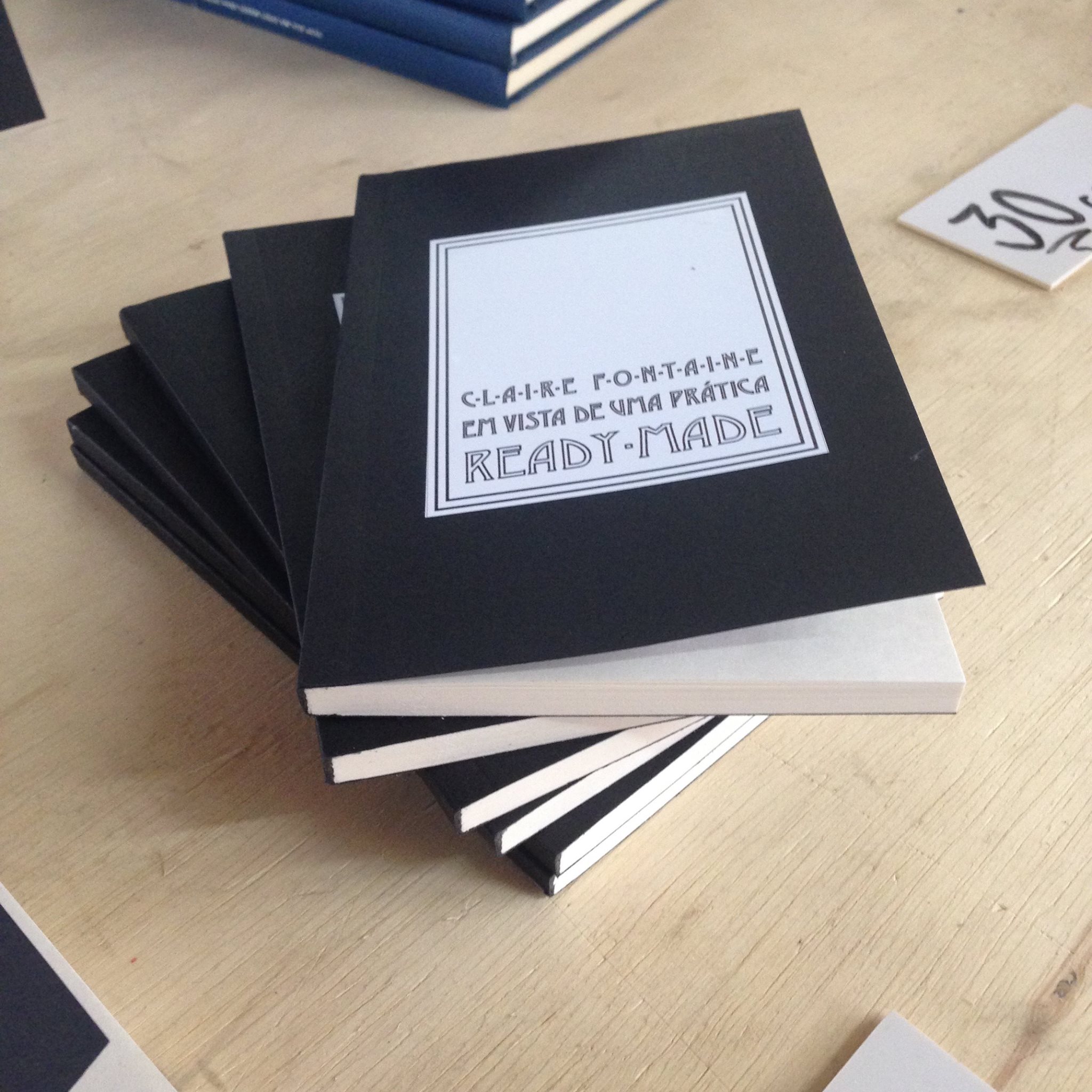CLAIRE FONTAINE:
IN CONVERSATION WITH THE EDITORS

This interview seeks to expand on the textual-artistic output of the artist Claire Fontaine. Conducted by Alex Ungprateeb Flynn and Leonardo Araujo, the interview contextualises Claire Fontaine’s political writings through questions on its relationship to the academy, to activism, and to temporality, while presenting its position on The Invisible Committee and contemporary art practice today.
Download the interview here
Claire Fontaine is a Paris-based collective, founded in 2004, comprising Fulvia Carnevale and James Thornhill. After appropriating her name from a popular brand of school notebooks, Claire Fontaine declared herself a “readymade artist” whose practice calls into question a lack of political agency and the crisis of the singularity of the subject, conditions which according to the collective, characterise contemporary art today. But if the artist herself is the subjective equivalent of Duchamp’s urinal or Warhol’s Brillo box – as displaced, deprived of its use value, and exchangeable as the products she makes – there is always the possibility of what she terms ‘la grève humaine’ - the human strike.
This interview, forms one part of the book 'Claire Fontaine: Em vista de uma prática ready-made'. The intention of the author and the editors was to clarify without false utopias, in this second moment, the inherent possibilities in the text's dialogue between reader/spectator.
Download the interview here
Claire Fontaine is a Paris-based collective, founded in 2004, comprising Fulvia Carnevale and James Thornhill. After appropriating her name from a popular brand of school notebooks, Claire Fontaine declared herself a “readymade artist” whose practice calls into question a lack of political agency and the crisis of the singularity of the subject, conditions which according to the collective, characterise contemporary art today. But if the artist herself is the subjective equivalent of Duchamp’s urinal or Warhol’s Brillo box – as displaced, deprived of its use value, and exchangeable as the products she makes – there is always the possibility of what she terms ‘la grève humaine’ - the human strike.
This interview, forms one part of the book 'Claire Fontaine: Em vista de uma prática ready-made'. The intention of the author and the editors was to clarify without false utopias, in this second moment, the inherent possibilities in the text's dialogue between reader/spectator.
auflynn [at] arts.ucla.edu
Alex Ungprateeb Flynn is an Associate Professor at the Department of World Arts and Cultures/Dance, University of California, Los Angeles. Working as an anthropologist and curator, Alex’s practice explores the intersection of ethnographic and curatorial modes of enquiry. Researching collaboratively with activists, curators and artists in Brazil since 2007, Alex explores the prefigurative potential of art in community contexts, prompting the theorisation of fields such as the production of knowledge, the pluriversal, and the social and aesthetic dimensions of form.